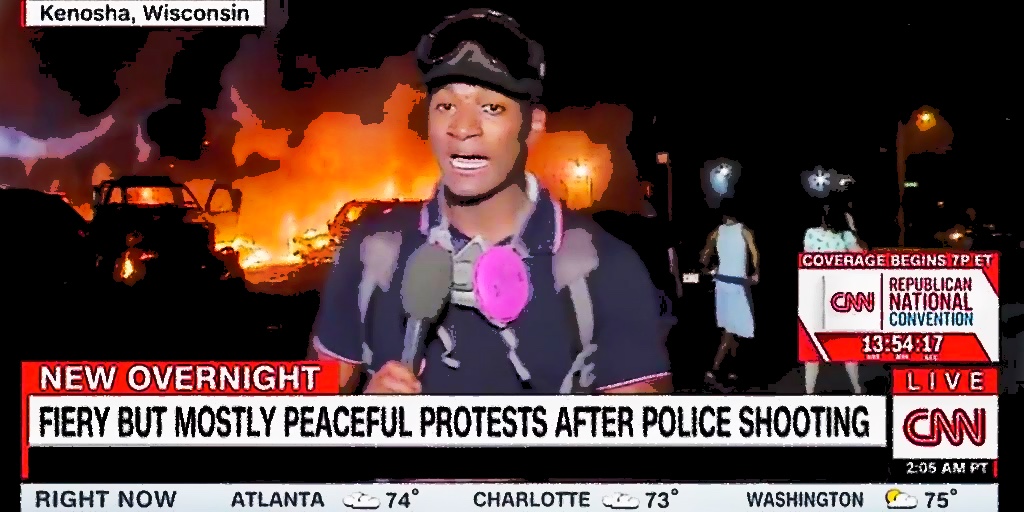You don’t know me, but I’m your brother. Thus sang the Doobie Brothers in 1976, America’s 200th birthday. Forty-four years later, America’s races still don’t trust, especially in this nation’s summer of fear and loathing. Whites are afraid of being called a racist. Blacks hate being told you’re not my problem. Whites hate to hear an urban legend that frightens blacks: some unwritten code instructs white cops to mistreat black suspects.
There’s some truth to the legend when a black senator, Tim Scott (R-SC), has been pulled over for “driving while black” and video clips show white cops using deadly force against unarmed black men. Whites suspect hyperbole because, every year, only 3.1% of black suspects resists arrest, and more police (163) than unarmed black men (10) die in police-suspect encounters. These facts should invite civil discussion and peaceable assembly, right?
But not in the Summer of 2020, because it’s an election year and there are increasing verbal threats of “race war” from Black Bloc and Black Lives Matter, who ignore Dr. King (non-violent). Black Lives Matter is actually modeled after Al Qaeda; de-centralized leadership and many targeted attacks. This will not end well. The more they terrorize, the more law-abiding citizens despise. And, if 42 million black lives matter, inciting a race war against 250 white lives is a bad strategy.
Race wars are always anti-authority and anti-government. In Kenosha, black rioters assaulted an armored police vehicle and a young white vigilante shot two protestors. Back in the nation’s capitol, anti-government thugs attacked RNC attendees, even screaming death threats at a senator, Rand Paul (R-KY). If so-called liberals don’t de-escalate the rhetoric, this violence will result in urban anarchy.
Finally, Joe Biden kinda-sorta condemned the violence. Sadly, he’s the first Dem to walk away from the 2017 mandate issued by Maxine Watters: “get up in their face and tell them they are not welcome.” In the resulting schizophrenia, Democrats call local police “white supremacists” and ask local whites to ignore “mostly peaceful protests.” They accept campaign funds from local police unions and promise to de-fund police departments.
In fairness, President Trump could help by admitting black lives matter and condemning what the videos prove. However, politicians are powerless if black suspects reject humility and white police reject common sense. Unlike elsewhere, individualism is engrained in Americans. Out on the street, this results in Wild West “rights” – black suspects with the right to resist and white cops with the right to use lethal force.
Brandon Tatum, a retired black policeman, offers a practical solution. Suspects with criminal records – regardless of race – must stop resisting arrest. Tatum admits cops, after hearing the 911 complaint and reading the suspect’s record, arrive to the scene in self survival mode that turns into warrior mode when a suspect ignores the officer’s authority. His advice to all suspects: better to be tried by twelve than carried by six.
In a smart-phone world, white cops must accept that whatever once worked is career-ending today. George Floyd (Minneapolis), Rayshard Brooks (Atlanta) and Jacob Blake (Kenosha) were unarmed near “getaway” cars, meaning it was possible to (1) record identities and addresses, (2) issue resisting-arrest citations and (3) disable “getaway” cars. After all, a cop who knows to drive away is free to arrest another day.
Ten incidents a year would be local news but for identity politics stoking racial division to elect Democrats. In New York, defunding the police will hurt poor black residents more than tax-paying white residents, who can afford to leave. Doing it right, statesman Tim Scott (R-SC) spoke to fixing situations (higher black incomes and better white policing) – only to be called “Uncle Tom” by CNN and rebutted by politician Kamala Harris, who demonized white police. Once again, this won’t end well.
